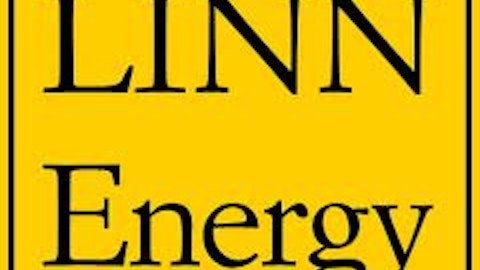Chesapeake Energy Corporation (NYSE:CHK)‘s performance over the past two quarters hints at a company that’s really turning things around, with a renewed emphasis on financial discipline and shareholder returns over reckless, debt-fueled expansion.

So far, the new approach appears to be paying off. First-quarter net income swung to a $58 million profit, as compared to a $28 million loss in the same quarter a year ago. And oil production grew 56% year over year, while production and administrative costs fell by 18% and 29%, respectively, from the year-earlier quarter.
“We’re beginning to see the benefits of our operational strategy shift from identifying and capturing new assets to developing our extensive existing assets as we enter a new era of shareholder value realization,” Dixon said during the company’s quarterly earnings conference call.
Chesapeake’s biggest challenge
While all that is well and good, Chesapeake Energy Corporation (NYSE:CHK) still faces major hurdles related to its high level of long-term debt, which came in at a worrisome $13.4 billion in the first quarter. To bring its debt down to a more manageable level – around $9.5 billion – this year, the company will continue to shed assets.
But therein lies a huge problem: How will Chesapeake Energy Corporation (NYSE:CHK) reconcile the conflicting challenges of maintaining robust production growth, while at the same time continuing its asset sale strategy?
Despite closing some $12 billion worth of asset sales last year, Chesapeake Energy Corporation (NYSE:CHK) still faces a daunting $3.5 billion funding gap – the difference between its spending and expected cash flow – for the year. To plug this gap, the company hopes to raise between $4 billion and $7 billion from asset sale proceeds.
So far this year, it has already signed or closed on $2 billion of asset sales. If it can sell $2 billion more and meet its low-end target of $4 billion in asset sales, the company reckons that it should be able to fully fund its spending program for the year, while maintaining long-term debt at or below its year-end 2012 level.
A distressed seller’s woes
But that prospect looks tenuous, as recent asset sales have been quite disappointing. For instance, Chesapeake Energy Corporation (NYSE:CHK) received less than a third of the price-per-acre value it thought its Mississippi Lime assets were worth when it gave Chinese oil giant Sinopec Shanghai Petrochemical Co. (ADR) (NYSE:SHI) a 50% stake in them.
And its most recent sale of Marcellus Shale assets to Southwestern Energy Company (NYSE:SWN) also fetched a discouragingly low price. If future sales continue to disappoint, Chesapeake Energy Corporation (NYSE:CHK) could have major problems in maintaining the rate of production growth it needs, since sales of producing assets substantially lower both the company’s total production and its cash flow.
Final thoughts
Chesapeake certainly seems to have improved in many of the areas in which it was previously lacking. But it’s facing two curveballs at the same time. If it weren’t plagued by liquidity concerns and could just focus on ramping up liquids production and unlocking value from its existing asset base, things would be much easier.
But maintaining production growth when you constantly have to sell assets, especially at undesirable prices, is no easy task. It will be interesting to see if Chesapeake can rise to the occasion and knock one out of the park.
The article Chesapeake Energy’s Biggest Challenge originally appeared on Fool.com.
Motley Fool contributor Arjun Sreekumar has no position in any stocks mentioned. The Motley Fool has the following options: Long Jan 2014 $20 Calls on Chesapeake Energy, Long Jan 2014 $30 Calls on Chesapeake Energy, and Short Jan 2014 $15 Puts on Chesapeake Energy.
Copyright © 1995 – 2013 The Motley Fool, LLC. All rights reserved. The Motley Fool has a disclosure policy.


